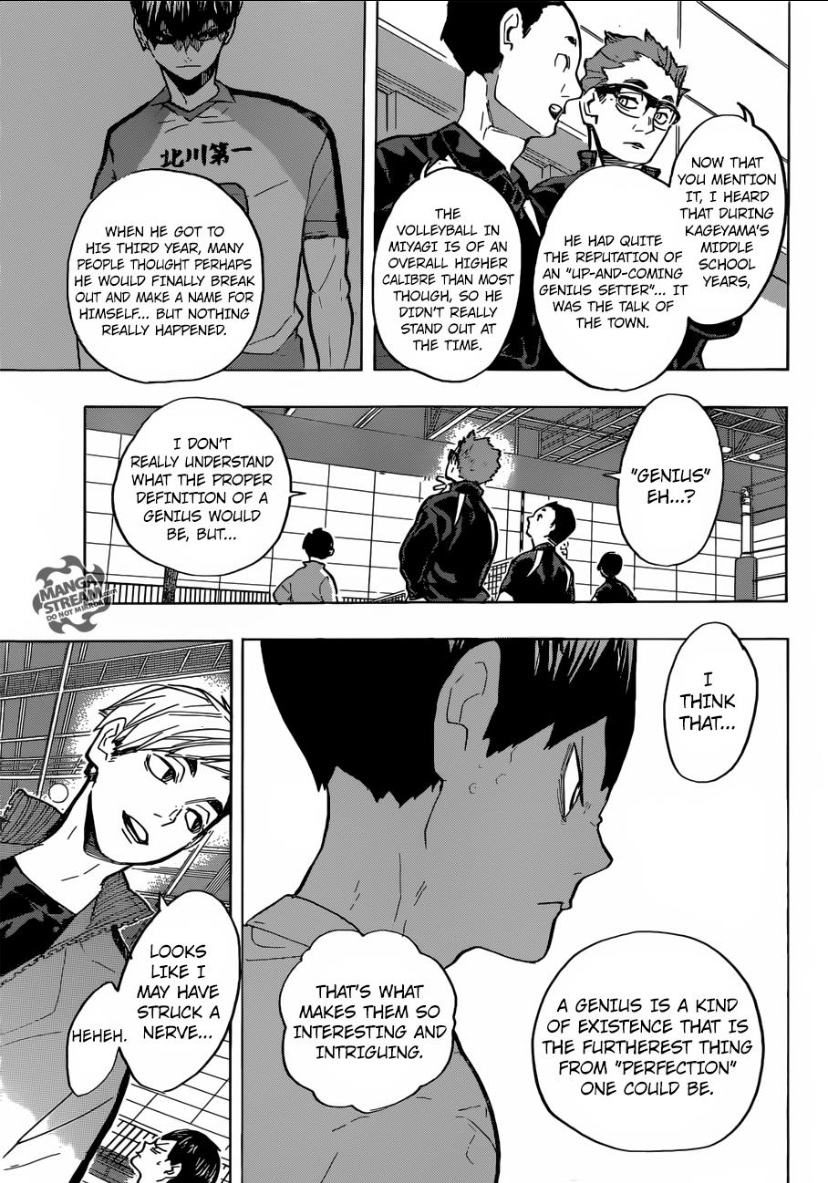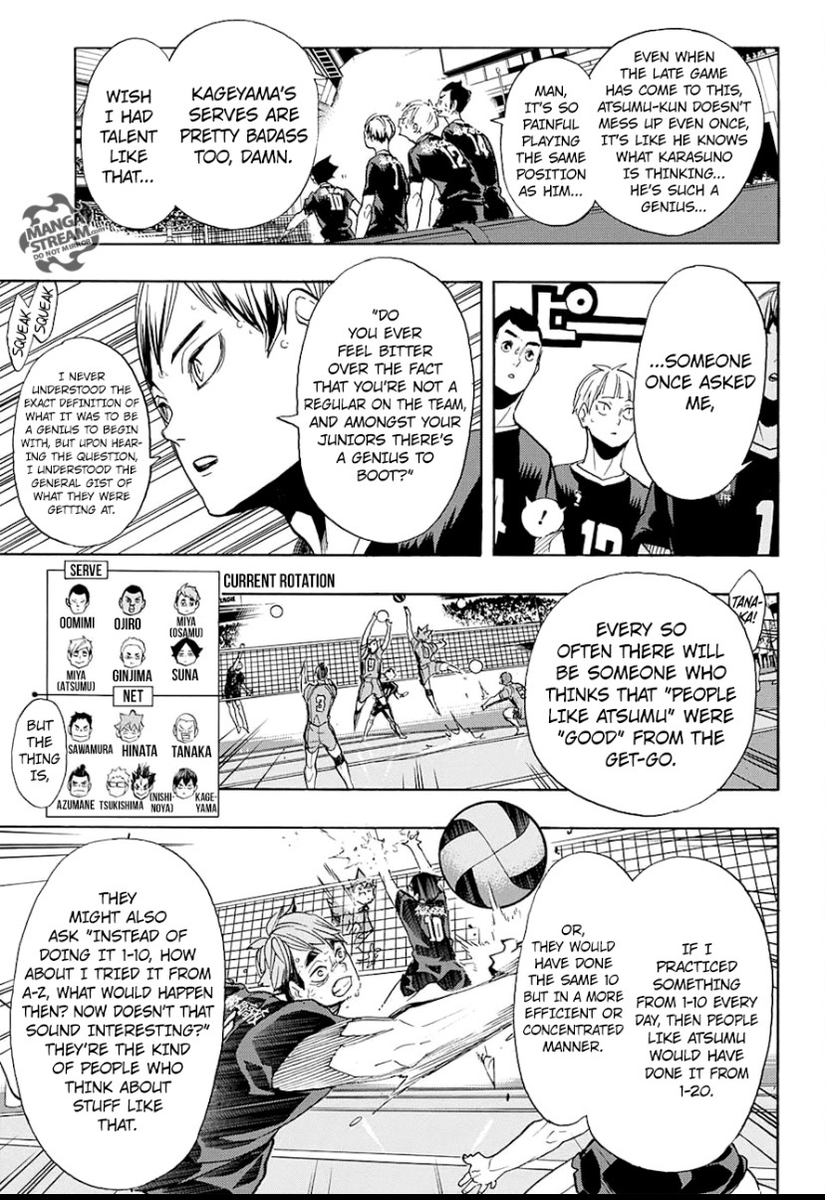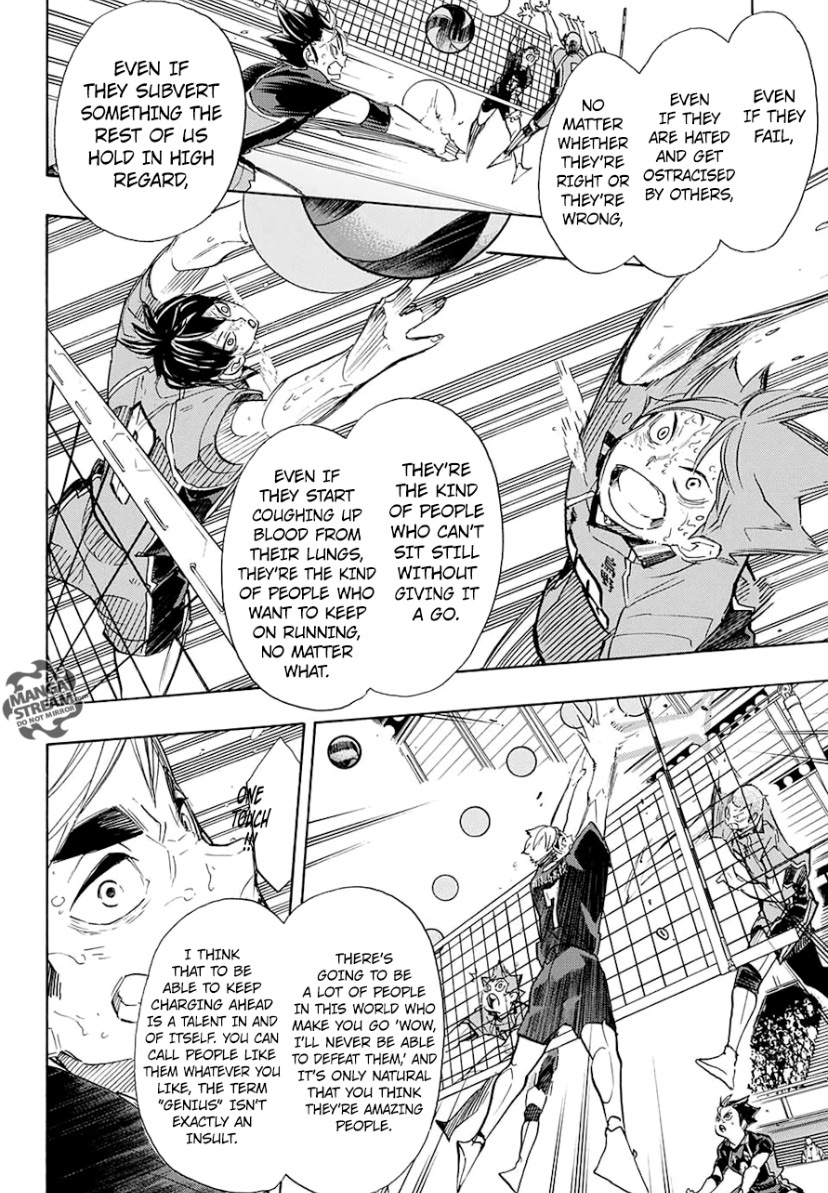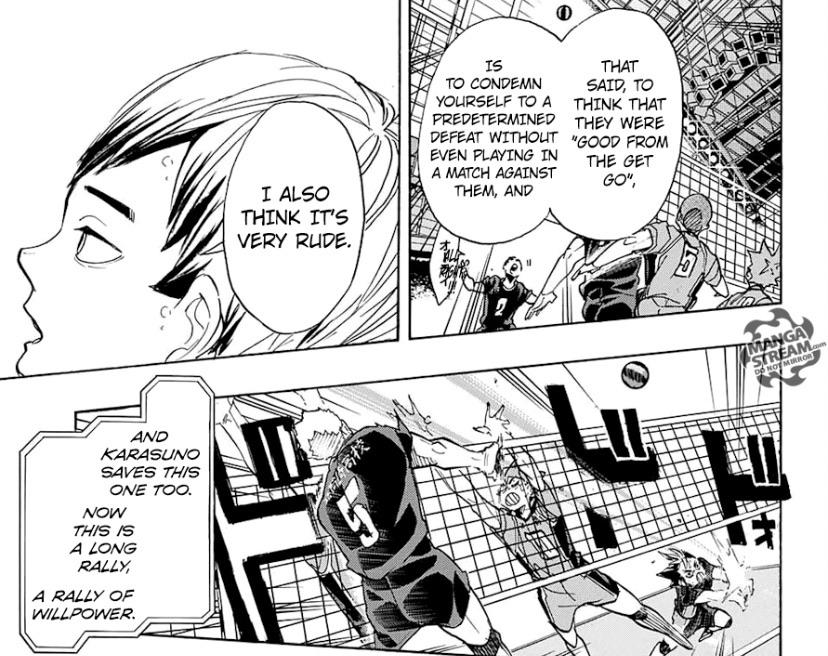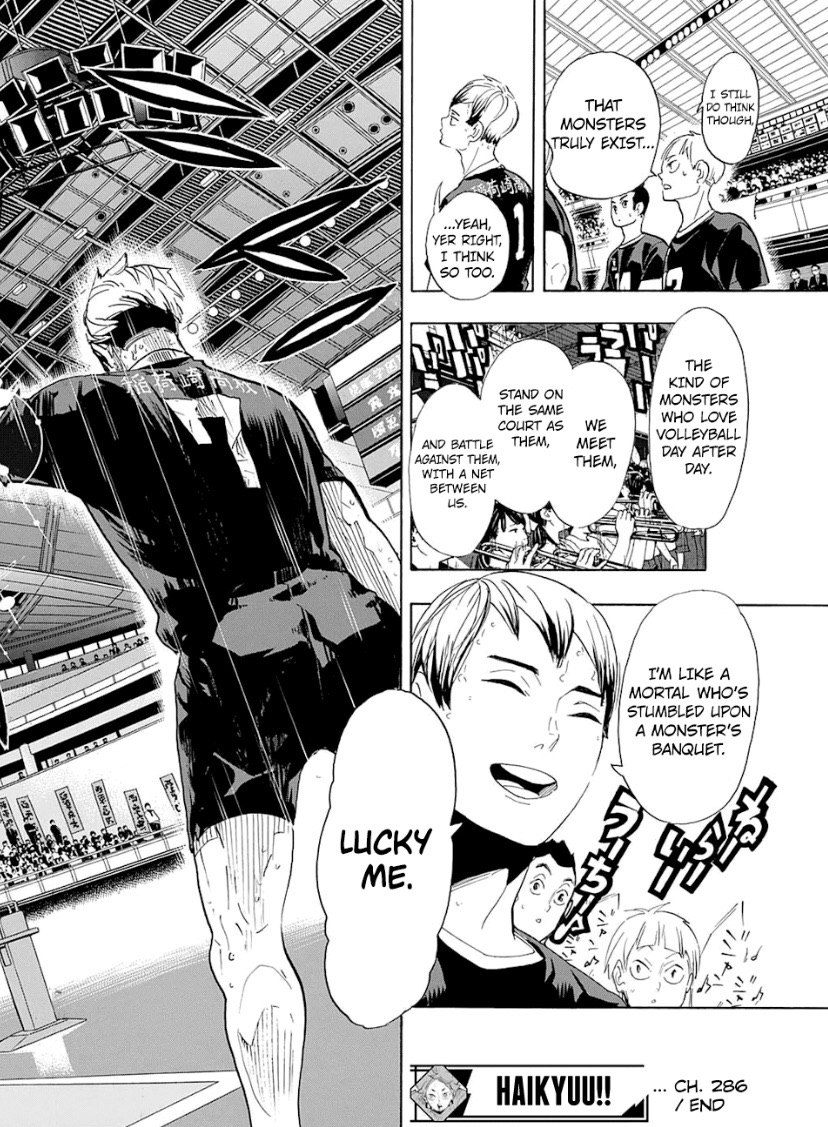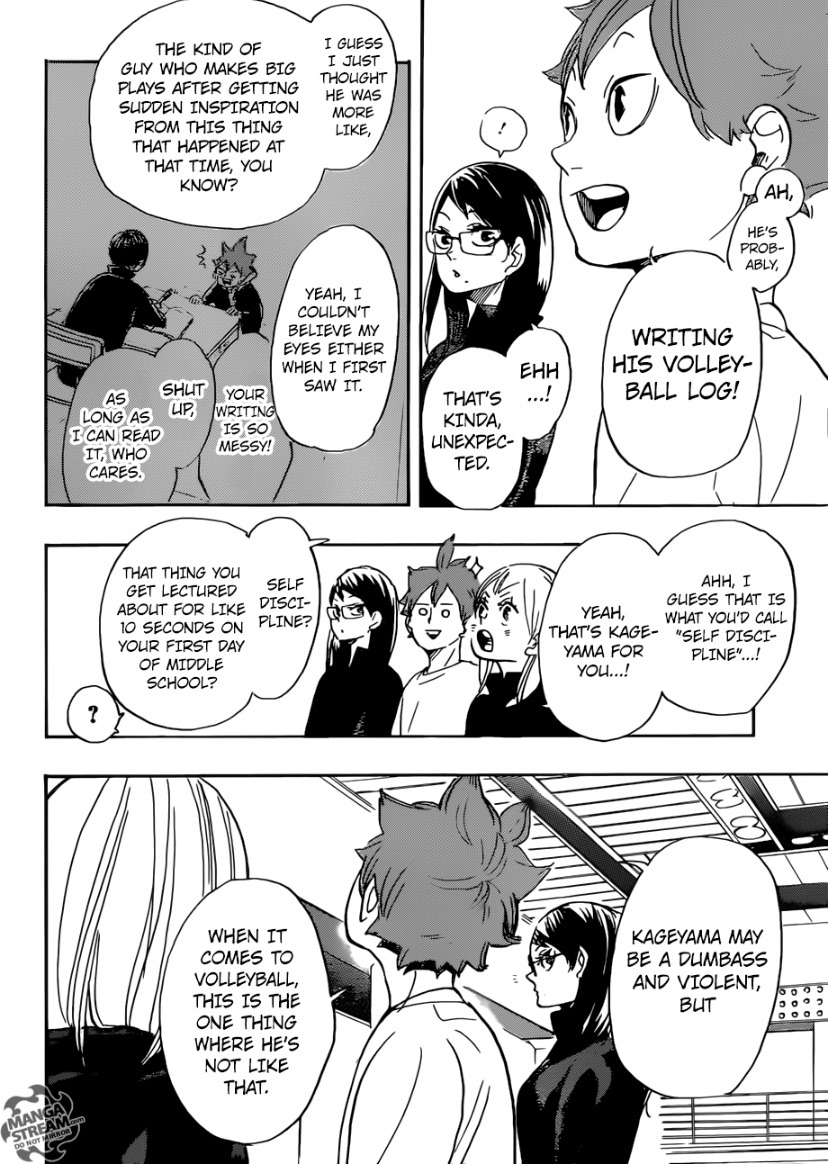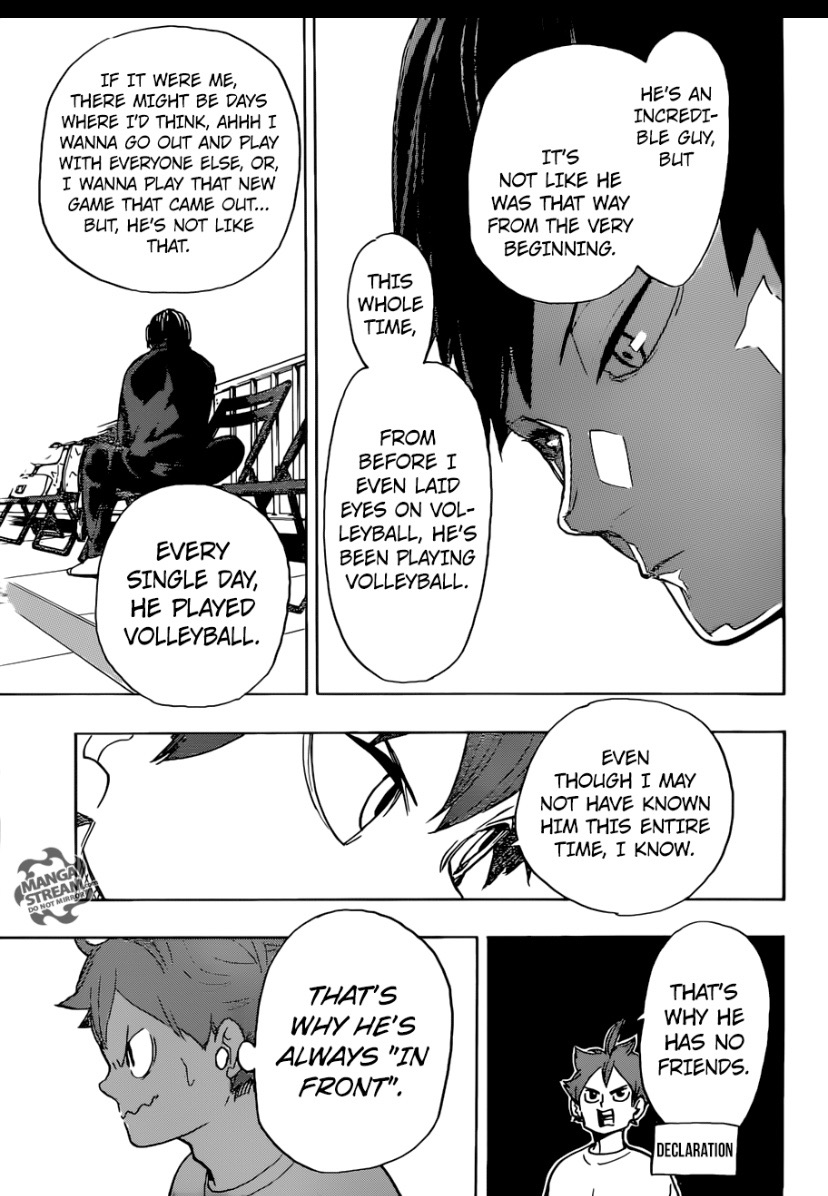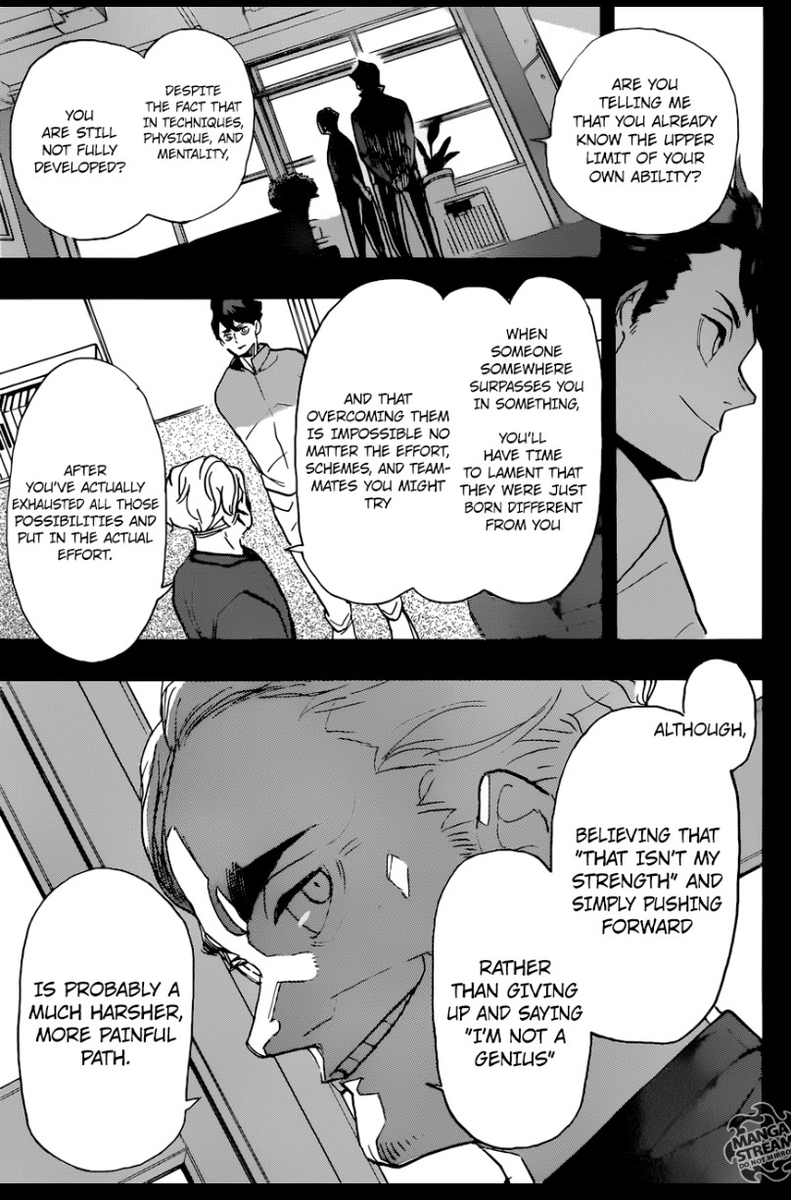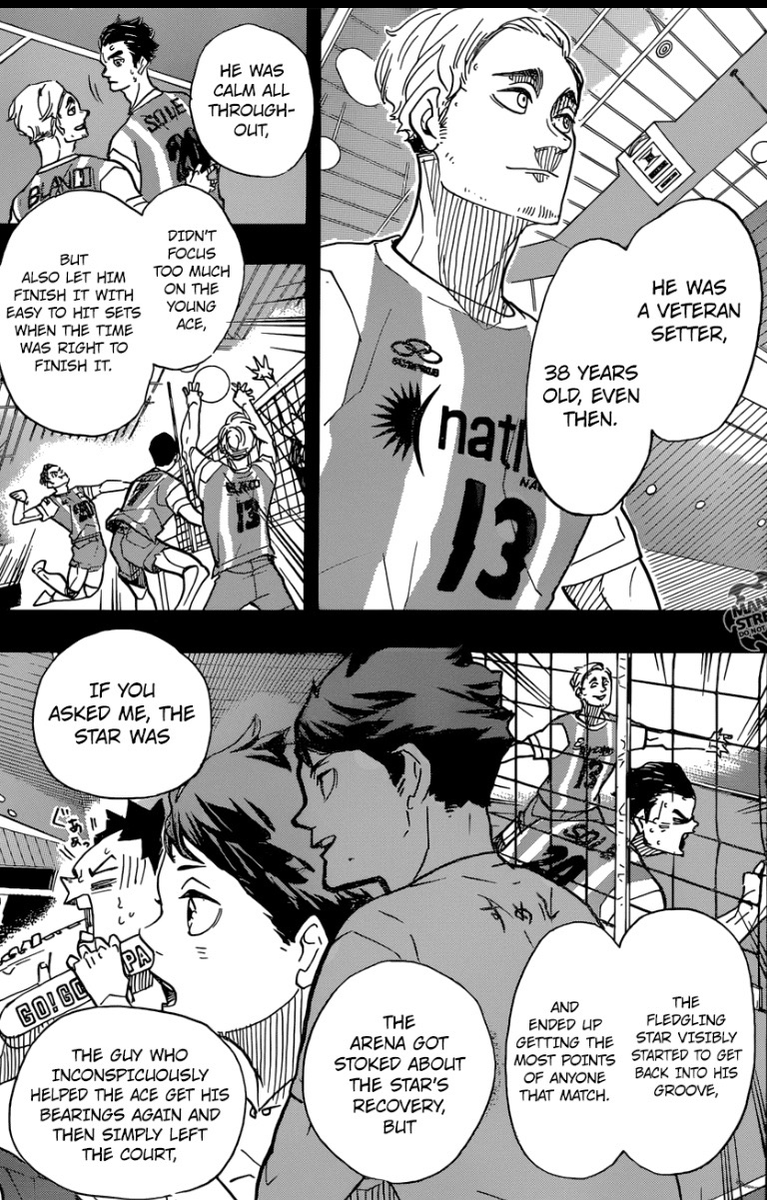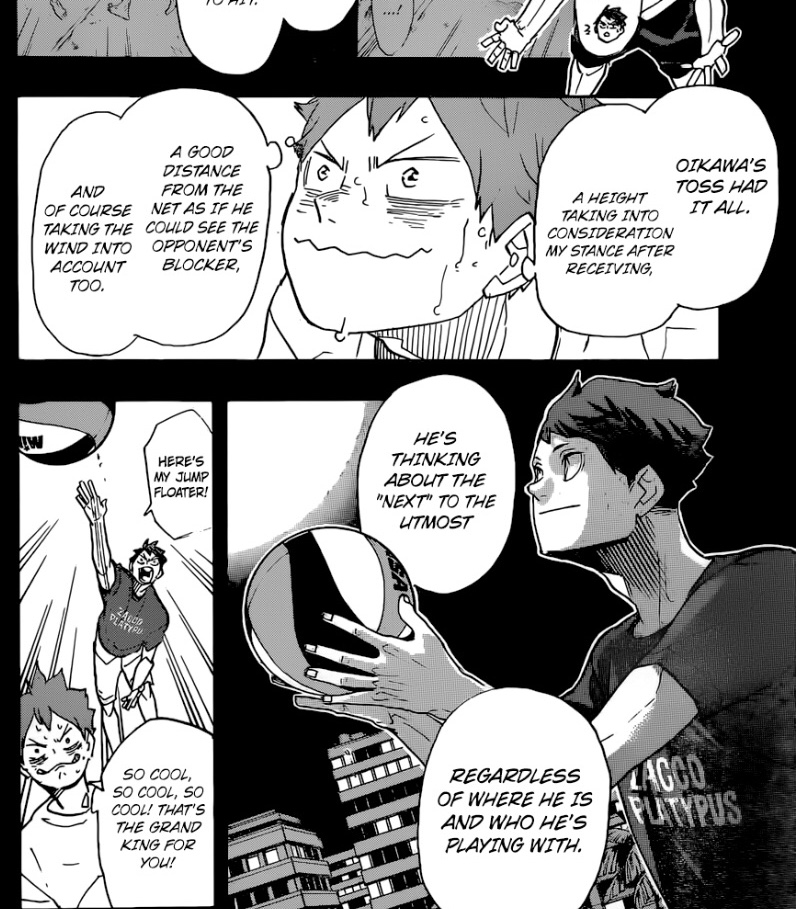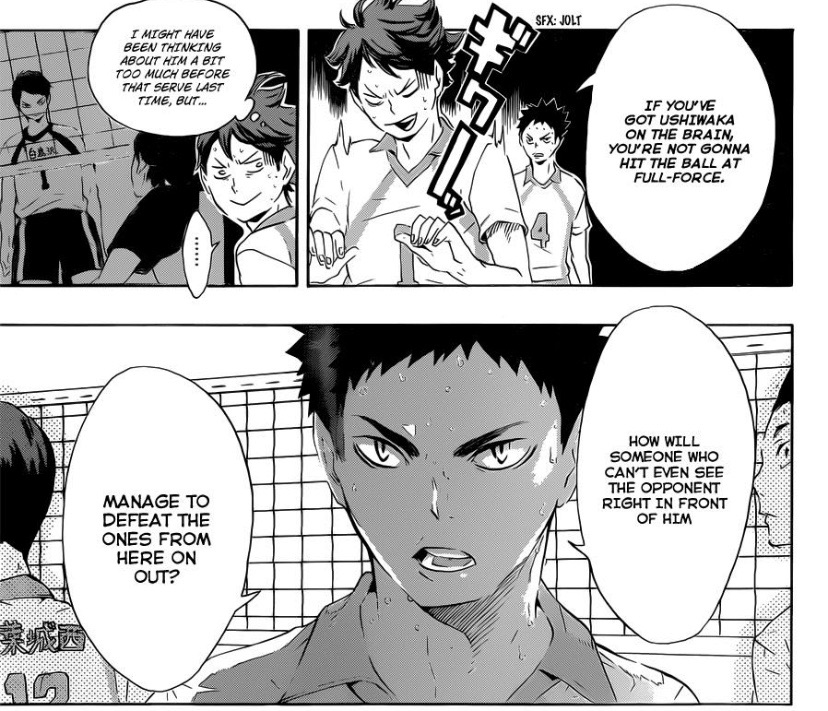Monsters and The Fallacy of & #39;Genius& #39;
Throughout the beginning of Haikyuu, the concept of being a genius is a predominant theme. Oikawa’s personal narrative that Kageyama and Ushijima are both geniuses who he will never be able to surpass is a compelling one – but is it accurate?
Throughout the beginning of Haikyuu, the concept of being a genius is a predominant theme. Oikawa’s personal narrative that Kageyama and Ushijima are both geniuses who he will never be able to surpass is a compelling one – but is it accurate?
To look at this first we need to examine how Haikyuu’s treatment of this term has evolved, and what it means to be a ‘genius’ or - a monster. Towards the beginning of the Nationals arc, the narrative’s views on ‘geniuses’ begins to take a turn.
One of the national youth camp coaches says the below quote as they discuss Kageyama. This makes it clear that being a ‘genius’ is simply one trait, not a reflection of you overall as a player.
Then, there is the iconic Monster Speech of chapter 286.
This speech is, at its fundamental core, a rejection of the concept of a born genius.
Every single word of this is fundamental to understanding the narrative’s changed attitude.
This speech is, at its fundamental core, a rejection of the concept of a born genius.
Every single word of this is fundamental to understanding the narrative’s changed attitude.
Kita still acknowledges there are people who are different, that he calls ‘monsters’. The difference is the recognition that these people are not good from the get go. They practice differently, harder, or longer. They keep charging forward endlessly chasing their passions.
Examining the manga’s most prominent ‘genius character’, Kageyama, we can see the truth of Kita’s theory. For a very long time, I would have unflinchingly said Kageyama is a genius. This is what the story tells us explicitly, primarily through Oikawa’s point of view.
In the Nationals arc, the story has goes out of the way to make the opposite point. We see Kageyama writing in his journal, daily, out of self discipline. It& #39;s clear to Hinata that Kageyama didn& #39;t start out being incredible. He has worked at it, every day.
Hinata & Oikawa are both ‘rivals’ of Kageyama who try desperately to be on his level but where Oikawa attributes his skill to insurmountable ‘genius’, Hinata, who knows him better than anyone, recognizes it as his hard work, commitment, and self-discipline that make him amazing.
Kageyama’s backstory served to show us the assumptions Hinata made were accurate. He played volleyball day after day, was instilled with a sense of purpose from his grandfather, and taught the importance of self-discipline. Volleyball was, and is still, his life.
And as Kita said, to write that off as him simply being good from the get go, is a large disservice.
Since ch 286, the word ‘genius’ has been used rarely, if at all, while monster has been used often. It seems Furudate used this speech as a direct rebuttal to earlier themes.
Since ch 286, the word ‘genius’ has been used rarely, if at all, while monster has been used often. It seems Furudate used this speech as a direct rebuttal to earlier themes.
As the story grows outside of just Miyagi, we are exposed to new ideas and can see that the themes presented as fact in Oikawa’s point of view may actually be intended as a reflection of Oikawa’s personal mindset, rather than reality. What being a genius, or naturally talented,
boils down to is essentially being a quick learner. But for some reason this trait is viewed as insurmountable. Other natural talents, like Hinata’s ability to jump, are viewed as strengths that can be countered, and the ‘genius’ quality should be viewed the same way.
With this mindset, how do we view Oikawa’s story? Maybe we are supposed to believe his downfall is not that he is not a genius, but that he believes so strongly in the concept. He often feels insecure about his position & puts a lot of pressure on himself to succeed individually.
He has been overcoming it through Iwa’s advice and his relationship with his team, but it still colors his view and weighs heavily on him. I feel Oikawa is consciously aware his genius narrative is wrong, as shown by his decision to follow Jose Blanco halfway across the world.
Jose is the one person who firmly refutes his genius narrative. He says you cannot lament being different until you try everything. His usage of the phrase "that isn’t my strength”, emphasizes the idea that being a genius is simply one type of strength, beatable like any other.
What originally caused Oikawa to look up to Jose was how he quietly came on the court and helped the ‘star’ player shine. What changed between then and his middle school years where he began to put an extreme amount of pressure on himself individually to succeed?
Hinata says that Oikawa is always “thinking about the ‘next’. I think Oikawa is very aware of the future, which is both a strength and a weakness. He always pushes forward, yet he is also hindered by his fear of the ever present possible enemy looming in the distance.
In 365, I always saw this ‘wall’ as unreachable genius. But, now I& #39;m considering it referring to Oikawa’s mentality & circumstances. With 6 people, the strong are even stronger. Oikawa is a player who brings out 100% of his team, maybe beating Shiratorizawa just wasn’t possible.
I’m still not personally sure how to think Oikawa’s story and what his wall actually is. However, what is clear to me now is that it is a disservice to take Oikawa’s genius narrative at face value given the lengths the story goes to critique the concept of born geniuses.
Oikawa Tooru is not a genius.
But, he is a monster, which puts him on equal footing with Kageyama and Ushijima.
But, he is a monster, which puts him on equal footing with Kageyama and Ushijima.
With this new definition of monster in mind, it also changes which characters should be given the monster title. Previously I thought they should have to go pro to be considered a monster, but now I think Osamu and Nishinoya are still considered ‘monsters’.
Both of them have pursued objectively risky life paths that are outside the ordinary for someone in their positions. Osamu could have gone pro with his brother, but chose to follow his passion instead. Nishinoya is literally fishing in Italy, do I even need to say more?
This fits with Kita’s definition “even if they subvert something the rest of us hold in high regard, they can’t sit still without giving it a go”. Both of them are charging forward and pursuing their dreams. They may not be volleyball monsters anymore, but they’re still monsters.

 Read on Twitter
Read on Twitter